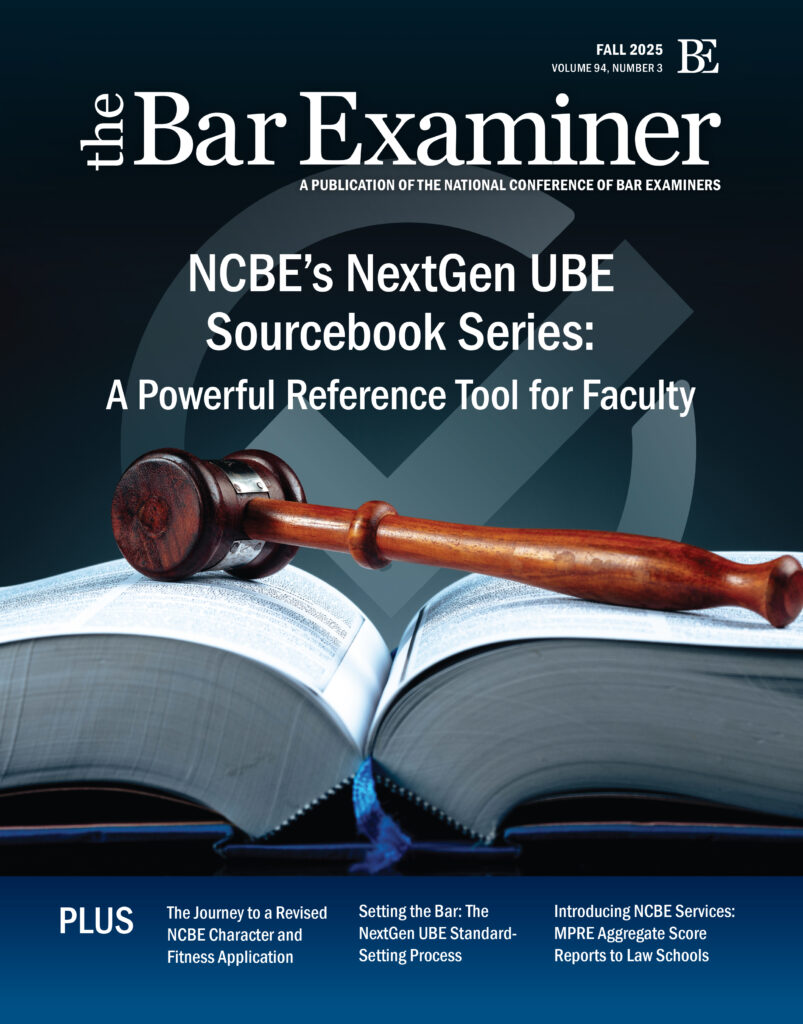This article originally appeared in The Bar Examiner print edition, Fall 2024 (Vol. 93, No. 3), pp. 25-31.By Marshall Ndhlovu, Itati Serrano, Myiesha Ash, and Ahmir J. Kenyatta
Founded in 1968, the Council on Legal Education Opportunity Inc. (CLEO) helps individuals from underrepresented communities prepare for, and succeed in, law school. NCBE has had a longstanding partnership with CLEO. For more, see these recent Bar Examiner articles: thebarexaminer.ncbex.org/article/fall-2023/ncbe-cleo-bar-passage-program/ and thebarexaminer.ncbex.org/article/fall-2023/from-my-perspective-fall23/. In the following interviews, four students—two pre-law undergraduates and two in law school—share their experiences as participants in CLEO programming.
The Pre-Law Student Perspective
An Interview with Marshall Ndhlovu
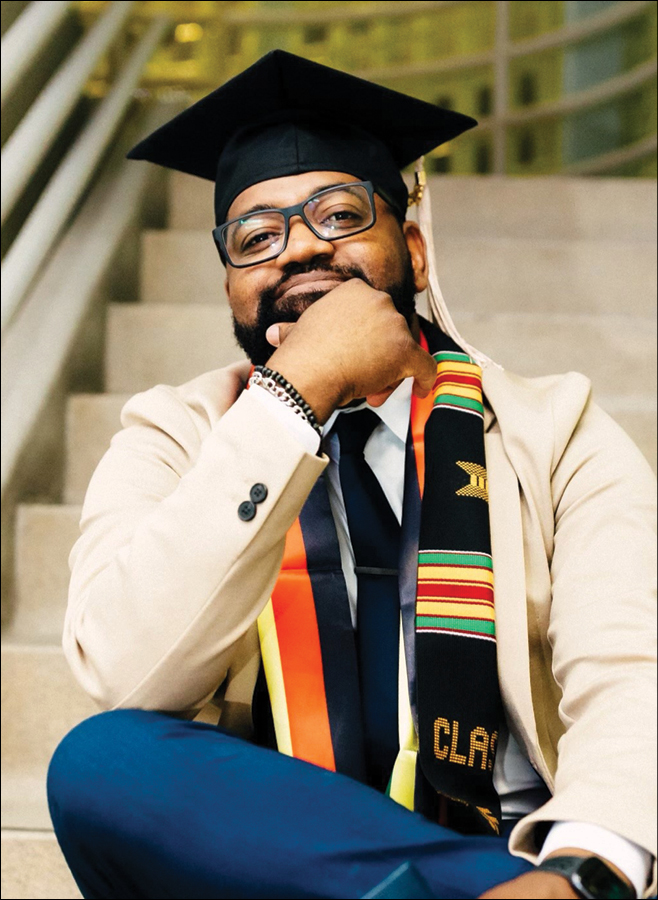 How did you become interested in studying law?
How did you become interested in studying law?
I grew up in a repressive society where my parents were unable to freely express themselves. I promised myself that one day I would stand up for them. When my father fell ill, I witnessed how difficult and expensive it was for him to receive proper treatment.
The societal inequalities convinced me that I want to become an attorney who stands up for those who are unable to do so themselves.
What are the personal challenges or obstacles you’ve had to overcome to pursue your goal of becoming a lawyer?
I was born and raised in the impoverished country of Zimbabwe before moving to the United States to pursue my undergraduate degree on a partial academic scholarship. Shortly after arriving on campus, my father became seriously ill, and I ultimately lost him. He was my financial support, so after his death I had to put myself through college by working long hours in the evenings and attending classes during the day.
How and at what stage of your studies did you hear about the Council on Legal Education Opportunity (CLEO)?
I heard about CLEO via the Law School Admission Council toward the end of my senior year in college, right before graduation. Once I was accepted into the CLEO Achieving Success in the Application Process (ASAP)1 Chicago program, I knew it would provide me, a first-generation college student, with the tools to reach for the stars and a blueprint for the law school application process.
Which CLEO programs did you participate in, and what did you learn from each?
I participated in the CLEO ASAP Chicago program, where I learned how to approach the LSAT effectively, how to craft my personal statement, how to request strong recommendations, how to obtain fee waivers, and what to consider when applying to schools.
What has been the most challenging thing in preparing for law school, and how have CLEO programs helped you meet those challenges?
The most challenging aspect of preparing for law school has been balancing full-time work with studying for the LSAT. I work multiple jobs to support my widowed mother, and I approach my LSAT prep as another job. At times, it can be overwhelming and physically exhausting, but I keep the bigger picture in mind: achieving a score I can be proud of. A competitive score will enable me to secure scholarships to pay for law school.
Without the support of CLEO, how different do you think your law school path would have looked?
CLEO has truly opened my eyes regarding what to watch out for when applying to law school. The advice I received from Lynda Cevallos at CLEO and the law school deans who participated in the CLEO ASAP Chicago program is invaluable and something I could only have gained by participating in such a program. Without their guidance, I wouldn’t know how to craft an effective personal statement, choose the right schools for myself, or study effectively for the LSAT. This month, I will be taking part in an LSAT prep course that CLEO helped arrange for its students. Without CLEO, I wouldn’t have been able to afford such a course at full price, so I am incredibly grateful for their support.
Where are you currently in your “road to law school,” and what do you plan/hope to do with your JD degree?
Currently, I am crafting my essays and prepping for the upcoming LSAT. I’ve also secured recommendation letters from my undergraduate professors at Drake University, the Drake University president, and my employer. I plan to fine-tune my application over the next year, aiming to be ready to apply to law school in the fall.
I hope to become a health care attorney and contribute to expanding accessibility to health care. My undergrad degrees are in data analytics and business law; with AI being a new frontier in our society, there are a lot of gray areas that will need lawyers’ involvement, especially in the health care arena. I look forward to contributing in this area.
Note
- For more on this program, see https://cleoinc.org/programs/asap/. (Go back)
Marshall Ndhlovu is a 2023 graduate of Drake University in Des Moines, Iowa.
An Interview with Itati Serrano
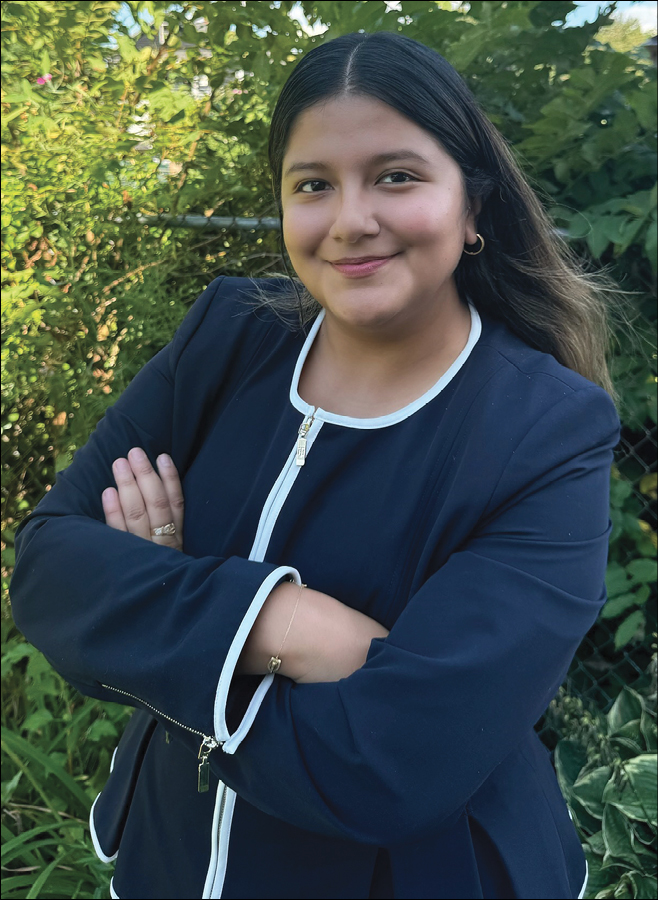 How did you become interested in studying law?
How did you become interested in studying law?
When I was young, my childhood innocence obscured my understanding regarding my father’s immigration status. My mother, pregnant with my brother, would not tell me the truth; she was in utter distress. I started to realize my father was being treated as a criminal. But why? He had done nothing wrong. I did not know the term “alien,” but soon would.
At eight years old, I designed my political campaign to become the next president of the United States. It was no mere goal; I saw it as my chance to propose legislation to grant all immigrants US citizenship and, above all, make clear why my dad should not be deported.
Despite witnessing my family’s anguish, every attorney in Queens turned down our case. I overheard one tell my mom to prepare us mentally for my father’s departure. But immigration attorney Kathy Margie was my family’s guardian angel. As soon as we walked into her office, she was a source of solace. Attorney Margie was the reason my father was released from prison and brought home for Christmas Eve.
I cannot articulate the profound impact she made on my heart at that moment, but I knew I was going to be a lawyer like her one day. I knew I was going to help another young girl like me keep her family together. My father’s battle continues to this day, but he and I confront it together, working for a sense of security and belonging in this country. Perhaps as a future attorney, I can help my father gain US citizenship.
What are the personal challenges or obstacles you’ve had to overcome to pursue your goal of becoming a lawyer?
Being a low-income, first-generation undergraduate student has been both my greatest challenge and my greatest blessing. It is not just the financial struggles that make my pre-law journey difficult—it’s living in a world where opportunities often seem out of reach for people like me. But my immigrant family instilled in me a deep belief that dreams are worth fighting for, no matter how big. While the burden of financial uncertainty is ongoing, it has further motivated my desire to succeed not just for myself, but for my family and mentors who have believed in me from the start. Life’s challenges have taught me that my most valuable resources are my support system, my grit, and my indomitable dream to make a difference for my community through the law.
How and at what stage of your studies did you hear about CLEO?
Director of the Center for Multicultural Affairs at Marist College, Iris Ruiz-Grech, did not just guide me academically—she introduced me to a second family: the CLEO familia. As a first-generation student, I was navigating the unknown, but she saw potential in me early on. She spoke passionately about CLEO’s programs, designed to empower students like me, and her words inspired me. By the end of my sophomore year, when law school became more than just a distant idea, I decided to join CLEO. I was not entirely sure what to expect, but little did I know that CLEO and its community would become one of the most defining parts of my journey to law school.
Which CLEO programs did you participate in, and what did you learn from each?
I had the privilege of participating in CLEO’s Achieving Success in the Application Process (ASAP)1 program. The two days were packed with information I never imagined being able to access. I received priceless advice from deans and directors of law school admissions, Law School Admission Council representatives, and experienced legal professionals.
ASAP was not just about practical knowledge, though. Thanks to CLEO, I could begin breaking the generational barriers that have held back students like me. This program did not just open doors—it completely reshaped my mindset. It gave me the courage to finally say out loud, “Although I’ll be the first in my family, I will go to law school.”
There are many moments on this journey where I have felt overwhelmed, but ASAP instilled a deep resilience in me that reminds me I’m not alone. I’m so thankful for the opportunity to be part of this program, and I hope more students get to experience what CLEO has given me.
What has been the most challenging thing in preparing for law school, and how have CLEO programs helped you meet those challenges?
One of the greatest challenges in preparing for law school as a first-generation student has been simply knowing where to begin. Starting the law school journey can feel overwhelming. I found myself lost, unsure of how to navigate the complexities of applications, the LSAT, and financial obligations. But CLEO changed all of that for me.
The ASAP program gave me a roadmap. CLEO taught me what LSAC is, how to apply for fee waivers, what the LSAT entails, and the critical role of a personal statement, all in an accessible way. More importantly, they gave me the confidence, along with a diverse community of support, to believe that I could handle it all. With their help, I’m not just dreaming of law school—I’m actively taking steps to get there.
Without the support of CLEO, how different do you think your law school path would have looked?
Without CLEO, my journey to law school would have been filled with doubt and uncertainties—as I said earlier, I probably wouldn’t know where to start. CLEO turned what felt like an impossible dream into a concrete plan.
Where are you currently in your “road to law school,” and what do you plan/hope to do with your JD degree?
Currently, I am preparing for the LSAT and immersing myself in experiences that strengthen my legal knowledge and advocacy skills.
Law school excites me because of the intellectual challenges it presents. With my JD degree, I am aiming to practice civil litigation or immigration law—fields that, to me, are vital in ensuring justice and equality for all. I believe these areas of law will not only allow me to positively impact people’s lives, especially those from communities like the Hispanic immigrant community I come from, but also push me to find innovative solutions to pressing legal issues.
Being a lawyer means more than just working in a profession to me; it is about standing up for those in need, being their advocate when their voices go unheard. I want to represent those who are underrepresented, ensuring they are defended in the legal system. If I can move even a small part of the world toward justice and equality, I will have fulfilled my life’s purpose.
Note
- For more on this program, see https://cleoinc.org/programs/asap/. (Go back)
Itati Serrano is a junior, class of 2026, at Marist College in Poughkeepsie, New York.
The Law Student Perspective
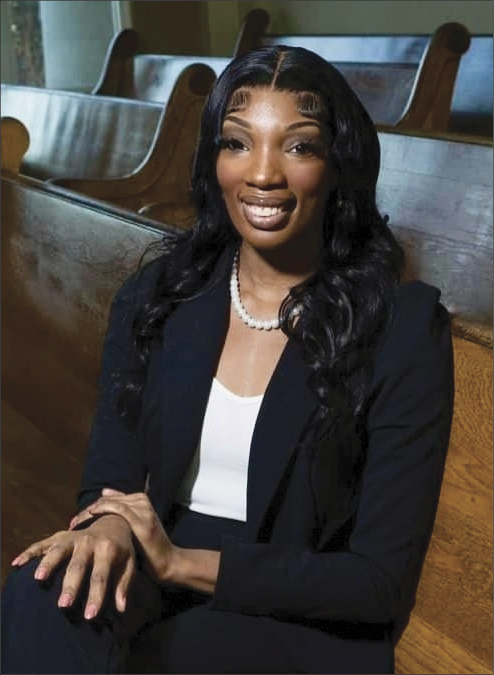 An Interview with Myiesha Ash
An Interview with Myiesha Ash
How did you become interested in studying law?
Growing up, I always wanted to become a lawyer. As I got older, I saw a lot of injustice in our society, such as police brutality, discrimination, hate crimes, and so much more. These issues inspired me to want to study law.
What are the personal challenges or obstacles you’ve had to overcome to pursue your goal of becoming a lawyer?
The personal challenge I have had to overcome to pursue my goal of becoming a lawyer is stepping out of my comfort zone by leaving the environment I am from and with which I am familiar.
How and at what stage of your studies did you hear about CLEO, and what impact did this have on you as a student?
I had just graduated with my master’s degree and wasn’t satisfied with settling for less. One day, I heard about CLEO while scrolling through my Instagram. I spotted a law coach who goes by “Becomingjd” advertising CLEO; their page also has live videos of interviews with previous CLEO students. Hearing all the powerful testimonies of how CLEO impacted their legal career made me want to apply. I did so and I had an interview. A few days later, I received notice that I was accepted into the CLEO Pre-Law Summer Institute (PLSI). It was an inspiring moment in my life. CLEO changed my life through better opportunities, and I am forever grateful.
Which CLEO programs did you participate in, and what did you learn from each?
I participated in the PLSI. In this program, I learned about a lot of important topics, such as case briefs, the IRAC (issue, rule, analysis, conclusion) method, the Socratic method, oral arguments, torts, the Constitution, criminal law, and so much more. Participating in PLSI has prepared me for my first year of law school.
How has participating in and receiving support from CLEO programs benefited you in your studies and eventual bar exam preparation?
CLEO’s support has benefited me in several ways, including through ongoing support throughout the semester via workshops with our summer professors, and PLSI staff calling to see how students are doing in law school. Furthermore, I have access to a commercial bar prep program at a discounted rate to help prepare for the bar exam.
What has been the most challenging part of law school, and how have CLEO programs helped you meet those challenges?
I must say the most challenging part of law school has been the heavy course load. CLEO has helped me meet this challenge by having a peer support group and knowing there are other people you can count on who are motivating and encouraging.
Without the support of CLEO, how different do you think your law school path would have looked?
If I had not had the support of CLEO, I would have never gotten accepted into law school, never had the opportunity to experience what law school would be like, or had a head start on what to expect in the first year. Being in CLEO helped me learn the IRAC technique and because I know how to break IRAC down, I have been succeeding in my courses.
Where are you currently in your legal career path, and what are your plans for the future?
I am a first-year law student at Vermont Law and Graduate School. My plan is to become a criminal defense attorney or what some may know as a public defender. I look forward to being a fantastic attorney, advocating in the community, fighting for what’s right, and making an impact in this world. One day, I want to open my own law firm and help low-income people.
Myiesha Ash is a 1L student at Vermont Law and Graduate School in South Royalton, Vermont. Ash previously earned a master’s degree in legal studies from Texas A&M University.
An Interview with Ahmir J. Kenyatta
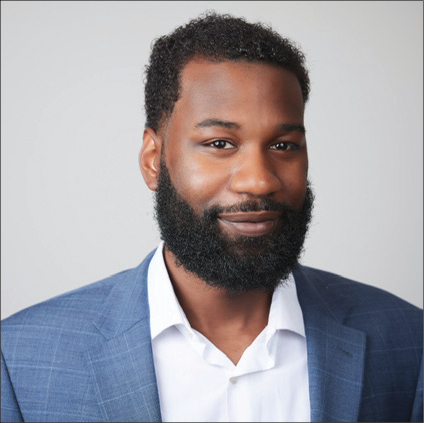 How did you become interested in studying law?
How did you become interested in studying law?
As a youth and young adult who aged out of Florida’s foster care system, I knew early on that I wanted to study law and use my juris doctorate to be a voice for the voiceless and pursue justice. Having been in foster care from around the age of 13, I quickly realized that to take an active role in my life, I needed to be at every court hearing, understand the rights of a child in care, and how to advocate for myself in court.
I began learning the Florida Rules of Juvenile Procedure and Florida’s child welfare statutes. My ability to understand the law was vital to explain to the court what I needed and wanted. Before I figured out how to file motions, and even e-file, I felt that the voice of the juvenile was insignificant but when I began to craft briefs, set hearings, and tell the court what I needed, my quality of life drastically improved.
Finding my voice was paramount in not becoming a statistic of the system. I also saw members of the legal community who cared about child welfare and others to whom it seemed like merely a job. These experiences molded my “why” and the dedication I knew I would have in my future law career.
Working toward my law degree is something that I feel is bigger than myself, giving me a tool that will be essential in helping protect child abuse and sex crimes victims as an aspiring special victims prosecutor. I also want to bring trauma-informed practices to the child welfare system, so that we not only prosecute those who abuse children and special victims, but we help victims pursue a road to healing.
What are the personal challenges or obstacles you’ve had to overcome to pursue your goal of becoming a lawyer?
Statistically, many in foster care struggle to earn a high school diploma or General Educational Development (GED) certificate, let alone a college degree. Last I checked less than 50 percent of foster youth obtain a high school diploma or GED, and less than 5 percent obtain an undergraduate degree. Overcoming those barriers through resilience and perseverance is something I am proud of. Moreover, the law school application process can historically be especially challenging for minorities. Preparing for and taking the LSAT, as well as navigating school applications and systemic barriers, were challenging, but with CLEO’s help I was able to get into law school.
How and at what stage of your studies did you hear about CLEO, and what impact did this have on you as a student?
I found out about CLEO when reading a Teen Vogue article about systemic barriers black female prosecutors faced. Former Baltimore States Attorney Marilyn Mosby mentioned CLEO and how their programs helped her succeed at Boston University School of Law.
Which CLEO programs did you participate in, and what did you learn from each?
CLEO’s Pre-Law Summer Institute (PLSI) is an intensive summer program aimed at helping future law students acclimate to the law school environment. It was hosted virtually and in-person; I attended in person at Mitchell Hamline School of Law in St. Paul, Minnesota, the host site. It really helped reinforce the Socratic method, time management, and aspects of some doctrinal courses 1Ls are expected to take.
How has participating in and receiving support from CLEO programs benefited you in your studies and eventual bar exam preparation?
CLEO has offered a sense of community with both faculty from various law schools and peer law students. Networking is a quintessential aspect of the practice of law, the legal field is highly specialized and also small, and my peers will be future jurists with me, so that sense of community is helpful. Being able to meet brilliant legal academicians such as Ana Otero and Rick Petry was impactful, and they exposed me to invaluable lessons such as how to use the IRAC (issue, rule, analysis, conclusion) exam-writing style, how to work with the Socratic method in class, and how to study for law school. Professor Otero even offered high-level advice as it relates to applying to the state bar. I will consider them both as resources during my legal career.
What has been the most challenging part of law school, and how have CLEO programs helped you meet those challenges?
Legal Writing can be challenging. Learning the intricate details of the Bluebook can feel like learning a new language, even something such as replacing multiple parties in a legal case with “et al.” Managing time can be challenging for some, but participating in PLSI prepared me to understand the dynamic and intense studying time required to be successful as a law student.
Without the support of CLEO, how different do you think your law school path would have looked?
I do not believe I would have been admitted to law school this cycle, and I am so grateful for the opportunity.
Where are you currently in your legal career path, and what are your plans for the future?
I am a first-year law student and recently got a job as a Legal Intern at the Shawnee County District Attorney’s office under The Honorable Michael F. Kagay, our county’s elected district attorney. I currently support the Executive Leadership Team with various projects, and I also support our Children in Need of Care unit, which, given my experience in foster care has a special place in my heart. I get to help with drafting petitions, briefs, and get to visit the dockets, and learn from members of the judiciary. I am in the process of my character and fitness investigation to obtain my Certified Legal Intern (CLI) credential so that in my second year I can serve as a CLI during the summer.
CLEO helped position me to take control of my legal journey although my story and path may be nontraditional this story is a testament that perseverance, grit, and passion can get anyone where they want to be!
Ahmir J. Kenyatta is a 1L student at Washburn University in Topeka, Kansas. Kenyatta previously earned a master’s degree in human resources and employment law from the Sandra Day O’Connor College of Law at Arizona State University, and a bachelor of science degree in criminal justice, cum laude, from Southern New Hampshire University.Contact us to request a pdf file of the original article as it appeared in the print edition.

